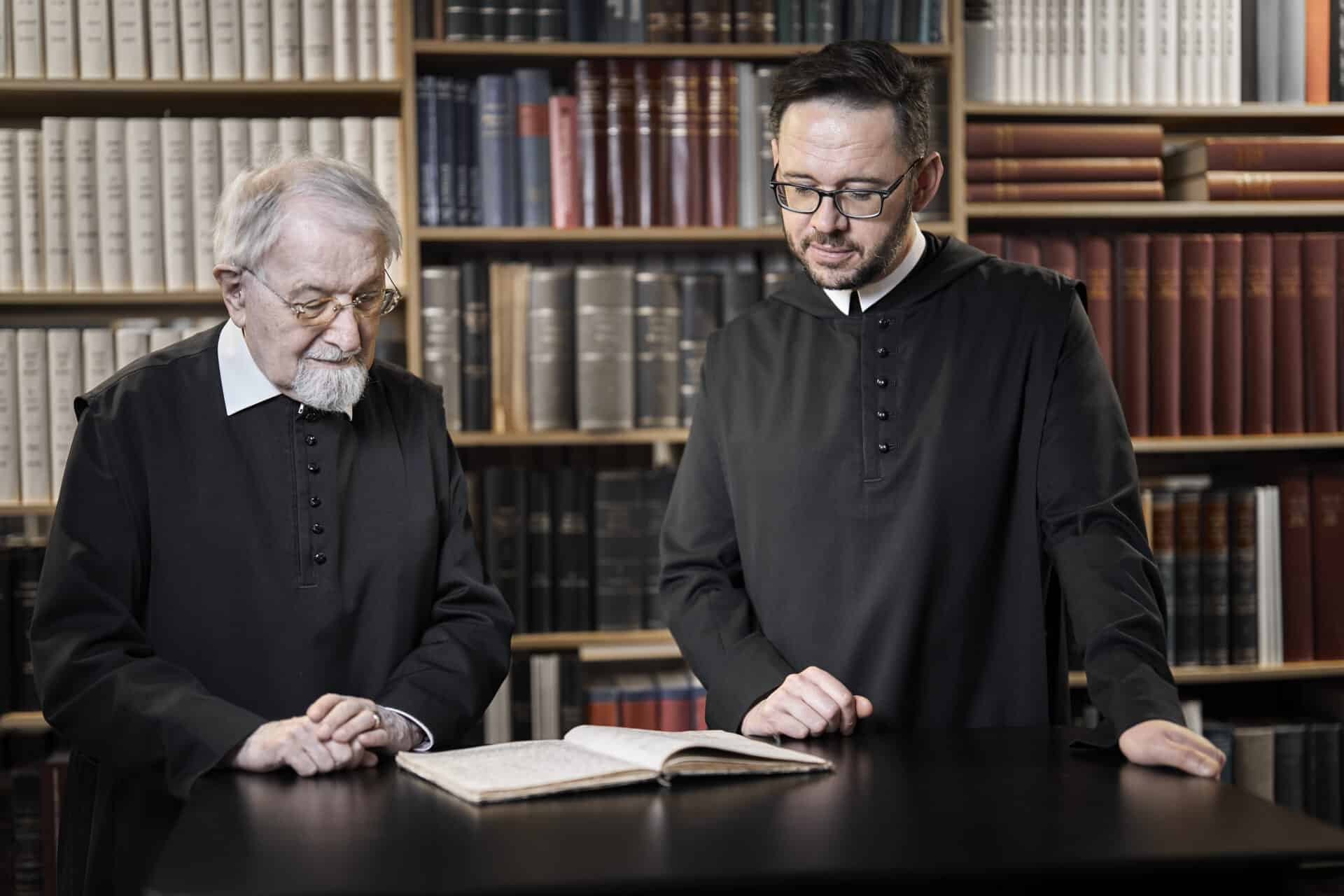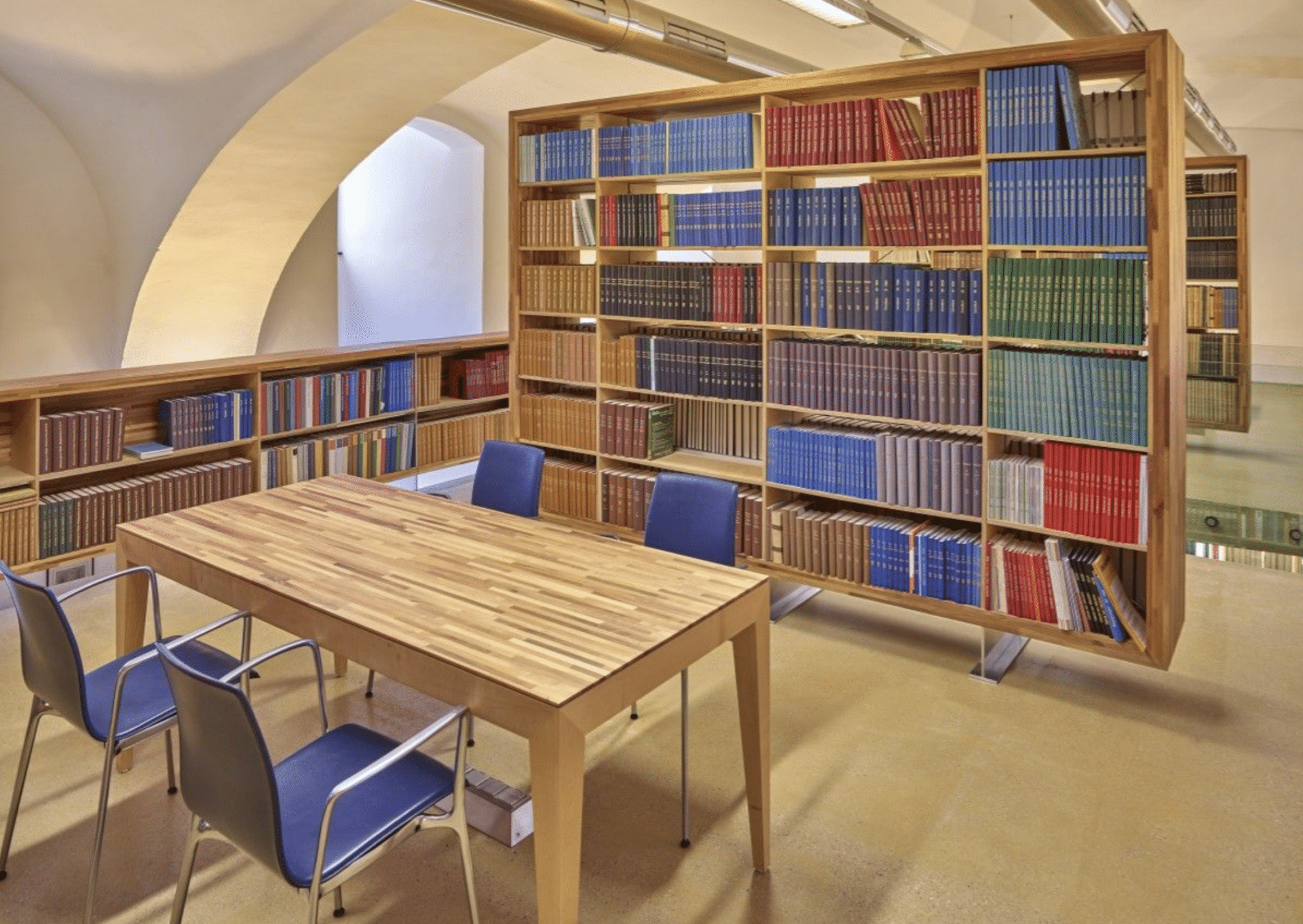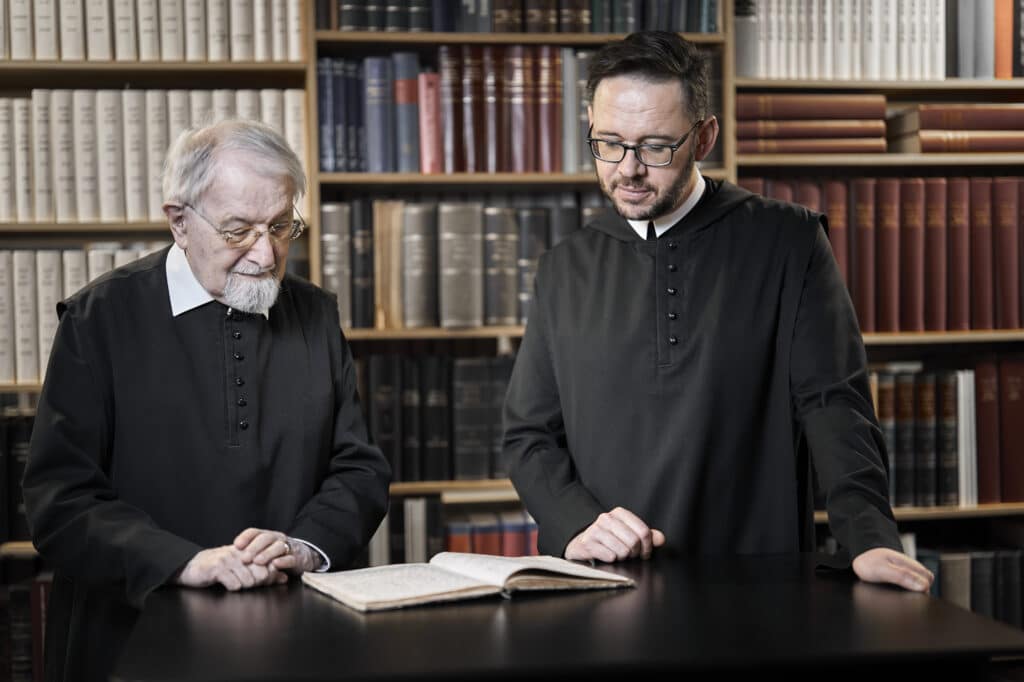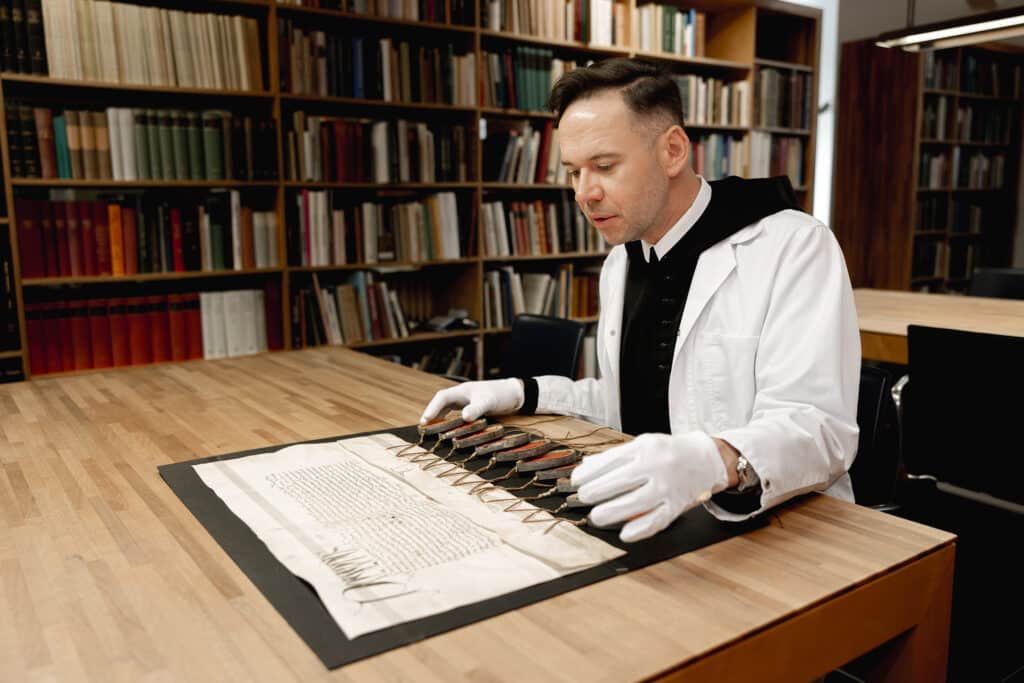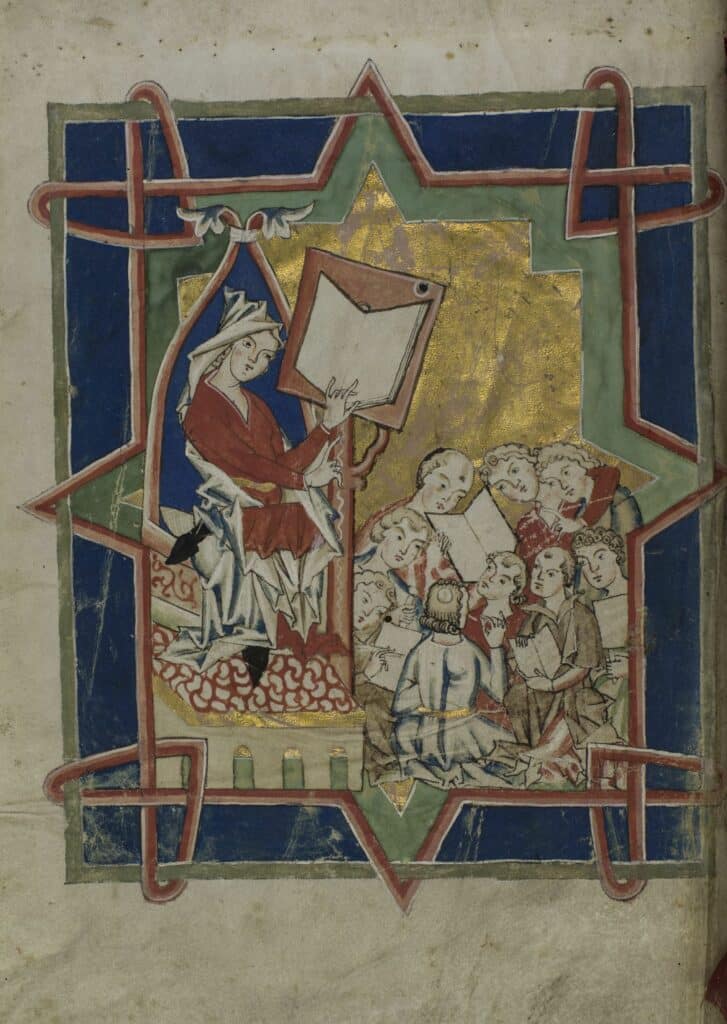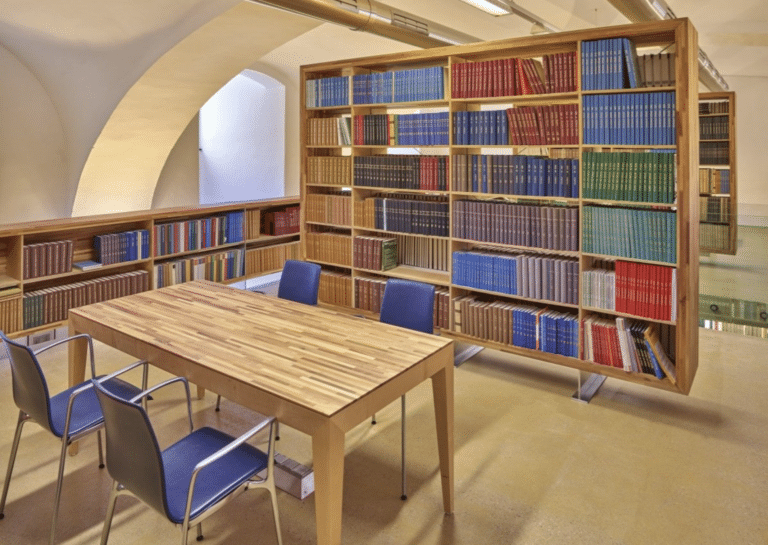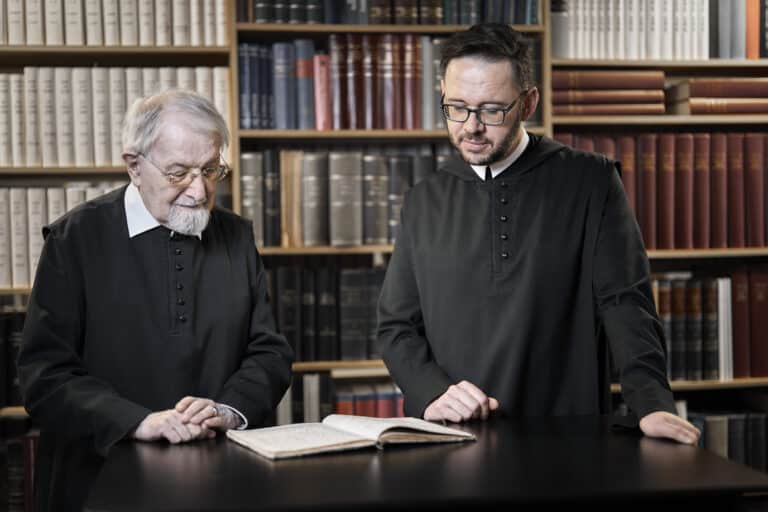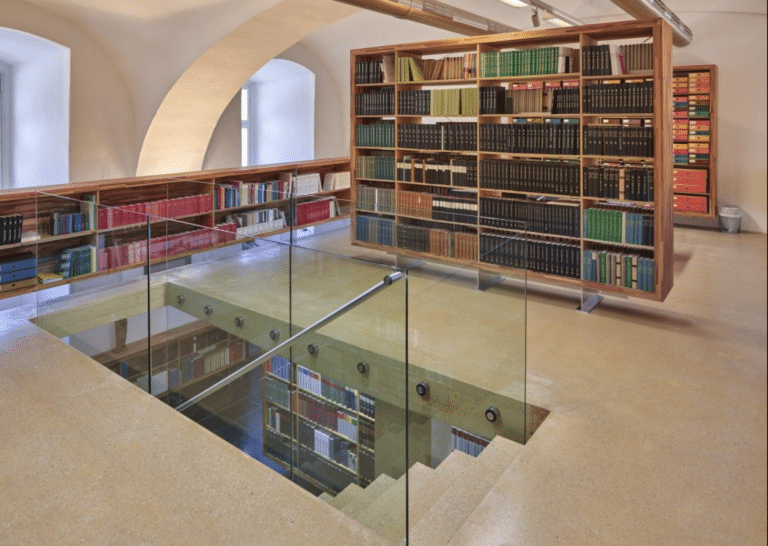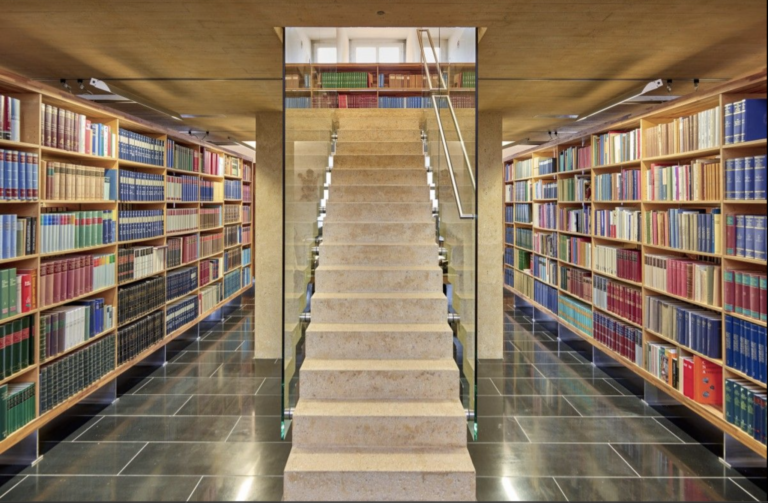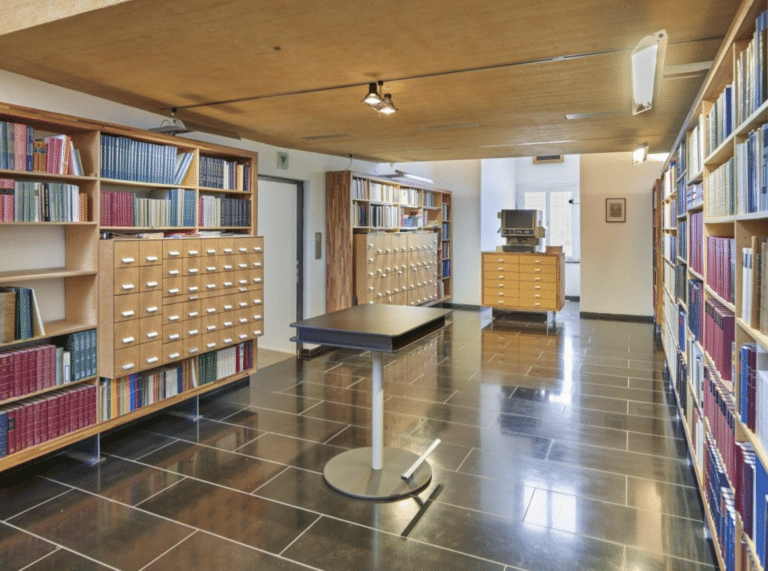The archive of the Benedictine Abbey of Admont
Source material from over 950 years
950 years of history - alive in the archive of Admont Abbey
Immerse yourself in almost a millennium of living history! The archive of the Benedictine monastery of Admont preserves a unique wealth of source material from over 950 years, since the foundation of the monastery.
Whether church, monastery or regional history, economics and forestry, family research or topics related to the manorial system - our archive is open to anyone interested in the historical roots of the region and beyond.
A treasure for researchers, inquisitive minds and history buffs - discover the cultural heritage of Admont Abbey!
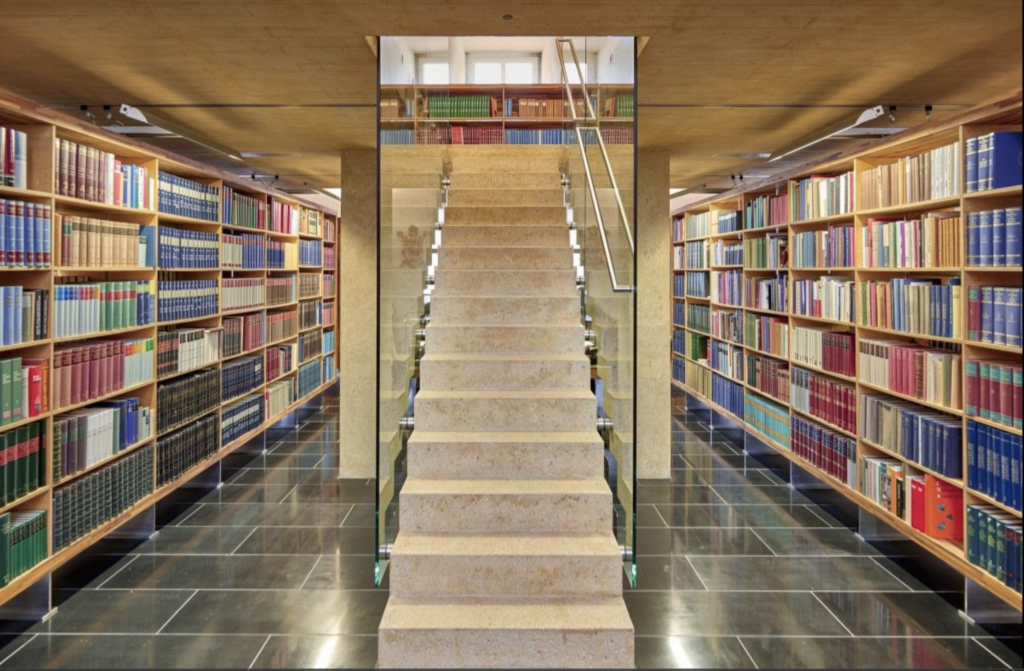
Exhibition catalogue "Of Abrogans and Nibelungs"
Admont Benedictine Abbey (ed.): Von Abrogans und Nibelungen. Sensational finds of German literature in Austria's monasteries. Special exhibition in the Abbey Library from 25 March to 15 November 2018. Passau: Pedagrafie Fotografie & Verlag 2018. 72 pages, colour illustrations. ISBN 978-3-945161-08-1
The catalogue is available at a price of € 9.90 (plus postage) from Father Prior Maximilian Schiefermüller OSB (see contact details below).

User Regulations
- Users (hereinafter: the user) must prove their identity during their first visit and acknowledge the provisions of the archive and library rules as binding through their signature.
- The user must disclose his research objectives to the Abbey Archivist and Librarian as accurately as possible; the Abbey Archivist and Librarian can only offer advice; the user has to work with the archival documents or books on his own. Required previous knowledge (literacy skills, language) is required. Instructions by the archive and library personnel must be obeyed.
- The collections can only be accessed in the reading hall under supervision. No exceptions can be made. Entering the stack-rooms is not permitted. Lending archival documents and books to private individuals is not allowed.
- Only sorted and undamaged archival collections that are allowed to be accessed from the archives (= 50 years after closing of the file or, in the case of personal effects, 50 years after death) and do not fall under other protective provisions will be handed out.
- The user undertakes to treat the archival documents and books handed to him with the greatest possible care, to keep them in their existing condition and, upon returning them, to put them back properly in the labelled boxes or folders. It is strictly forbidden to make notes in them, etc., to use archival documents as a writing pad and to place open archival documents or books on top of each other. Careful handling of archival documents and books means the gloves provided must be worn. The use of ballpoint pens and fountain pens is prohibited. The user is liable for any damage caused during use.
- The making of photocopies is only possible to a limited extent with authorisation, provided that the state of preservation of the archive records and books permits this. The costs are to be paid to the Abbey archivist or librarian. Photocopies of documents and files with seal impressions are not made; the same applies to archive materials that may only be used with special authorisation. Fees for photocopies are charged according to the fee schedule.
-
The number of archive materials and books to be issued at any one time is limited at the discretion of the Abbey archivist and librarian. The use of electronic data capture devices in the reading room is possible by arrangement. When leaving the workplace, the user must announce the cancellation of his work.
-
In publications, every user is obliged to cite the archival materials used from the holdings of the archive and library (designation: Archive and Library of the Benedictine Abbey of Admont [ABBA], collection, box, fascicle or number). Editions and reproductions of archive material are subject to authorisation. In the event of publication or reproduction of research results obtained from the archive and/or library holdings, a specimen copy must be sent to the Admont Abbey Archive free of charge and without being requested to do so. This also applies to unprinted theses and dissertations.
-
The user declares that he/she is aware of the relevant provisions of the Personal Status Act, the Data Protection Act (DSG) and copyright law and expressly undertakes with his/her signature to observe the aforementioned legal provisions when publishing research results based on the materials submitted for inspection and not to publish any protected personal data. The user himself is responsible for any infringements.
-
Violations of the user regulations may result in immediate exclusion from further use.

